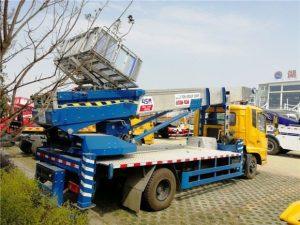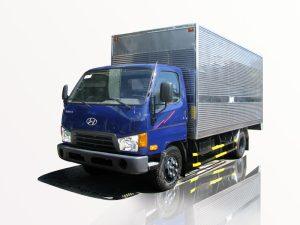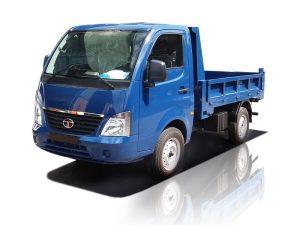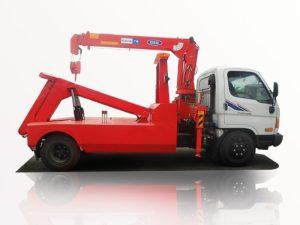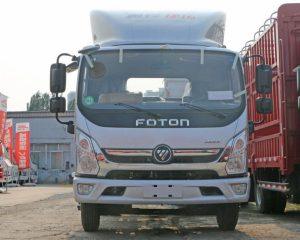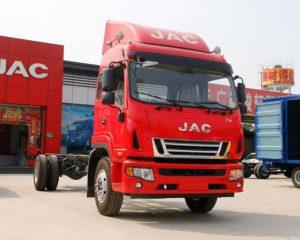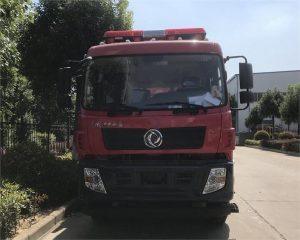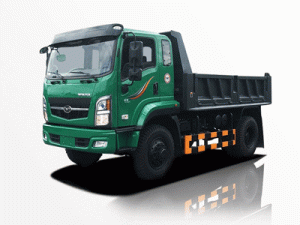Monday to Saturday - 8:00 -17:30
What is a Water Truck? A Comprehensive Guide
A water truck is a specialized vehicle designed for transporting and distributing water for various applications, including construction sites, agricultural operations, fire control, and dust suppression. With its large tank and complex pumping systems, a water truck plays a crucial role in managing water resources efficiently. In this article, we will explore the features, types, uses, and benefits of water trucks, along with practical examples and tips for optimal use.
1. Understanding Water Trucks
1.1 Definition of a Water Truck
A water truck is a heavy-duty vehicle equipped with a water tank, typically ranging from 1,000 to 6,000 gallons in capacity. These trucks are engineered to transport water over short and long distances while delivering it precisely where needed.
1.2 History and Evolution
The concept of water transport began centuries ago with manual carts pulled by animals. However, the advent of motorized vehicles revolutionized this process, leading to the modern water trucks we see today. The introduction of advanced pumping and filtration systems has further enhanced their efficiency and utility.
2. Core Components of a Water Truck
2.1 Water Tank
The tank is the primary component of the water truck. Constructed from materials such as aluminum or stainless steel, the tank’s design and capacity vary based on the truck’s intended use.
2.2 Pumping System
Water trucks are equipped with various pumping systems that can distribute water at different pressures and flow rates. The pumps can be operated through the truck’s power take-off (PTO) system or via dedicated engines.
2.3 Manifold and Hoses
A manifold is a vital part of a water truck that allows the operator to control the distribution of water to different hoses. Hoses attached to the manifold can vary in length and diameter based on application needs.
2.4 Spray Bar
Many water trucks are fitted with spray bars that help in evenly dispersing water over a designated area, which is particularly useful in dust control and landscaping.
3. Types of Water Trucks
3.1 Standard Water Trucks
Standard water trucks are equipped with a basic water tank and pumping system. They are typically used in general applications such as construction sites and landscaping.
3.2 Water Tankers
Water tankers are larger variants capable of carrying greater volumes of water over long distances. They are often used in emergency situations, such as firefighting or disaster response.
3.3 Specialized Water Trucks
These trucks are customized for specific tasks, including agricultural irrigation and dust control in mining operations. They may include unique features such as GPS tracking or advanced filtration systems.
Comparison Table of Water Truck Types
| Type | Capacity | Common Uses |
|---|---|---|
| Standard Water Truck | 1,000 – 4,000 gallons | Construction, Landscaping |
| Water Tanker | 4,000 – 10,000 gallons | Emergency Response |
| Specialized Water Trucks | Variable | Agriculture, Mining |
4. Applications of Water Trucks
4.1 Construction Sites
Water trucks deliver water for mixing concrete, controlling dust, and providing potable water for workers. They help maintain safety standards and improve work efficiency.
4.2 Firefighting Support
In remote areas without water infrastructure, water trucks are vital for supplying water to firefighting efforts. They can transfer large amounts of water quickly to combat wildfires.
4.3 Agriculture and Irrigation
Water trucks are extensively used in agriculture to irrigate crops. They can deliver water during dry seasons or in regions with limited water access.
4.4 Dust Control
In industries like mining or construction, water trucks are deployed to control dust and enhance air quality. The water reduces airborne particles and maintains a safer work environment.
5. Benefits of Using Water Trucks
5.1 Efficiency
Water trucks streamline the process of water delivery, saving time and labor. They can quickly transport large quantities of water, reducing the need for multiple trips.
5.2 Versatility
Water trucks can be adapted for various applications, making them a reliable solution for multiple industries. Their customizable features allow for specialized use in different scenarios.
5.3 Environmental Impact
By controlling dust and managing water resources efficiently, water trucks play a role in mitigating environmental issues. They help maintain ecological balance in construction and agricultural operations.
6. Tips for Operating a Water Truck
6.1 Regular Maintenance
Routine checks and maintenance of the pump, hoses, and tank are crucial for optimal performance. Regular servicing will extend the lifespan of the water truck.
6.2 Safety Protocols
Ensure that all safety measures are followed when operating a water truck. This includes wearing protective gear, securing the load, and adhering to local regulations regarding water transport.
6.3 Training and Certification
Operators should undergo proper training to handle water trucks effectively. Certification can enhance skills and ensure safe operation on various sites.
6.4 Use GPS Technology
Incorporating GPS tracking can enhance efficiency by optimizing route planning and ensuring timely delivery.
7. Frequently Asked Questions (FAQs)
7.1 What is the typical capacity of a water truck?
The capacity of water trucks typically ranges from 1,000 to 10,000 gallons, depending on the truck’s design and intended uses.
7.2 How is water pumped from the truck?
Water is pumped from the truck using a pumping system that can operate through the truck’s power take-off system or an independent engine, allowing for adjustable pressure and flow rates.
7.3 Can water trucks be used in residential areas?
Yes, water trucks can be used in residential areas for tasks such as landscaping, dust control, and providing water for construction work, though local regulations must be followed.
7.4 What are the maintenance requirements for water trucks?
Maintenance includes regular checks on the tank for leaks, pump functionality, hose integrity, and ensuring that all equipment is in working order to ensure efficient operation.
7.5 Are water trucks environmentally friendly?
Water trucks can be environmentally friendly if used responsibly. They help manage water resources efficiently, control dust emissions, and prevent erosion.
7.6 How much does it cost to rent a water truck?
The rental cost for a water truck can vary widely based on location, capacity, and rental duration, typically ranging from $150 to $400 per day.


